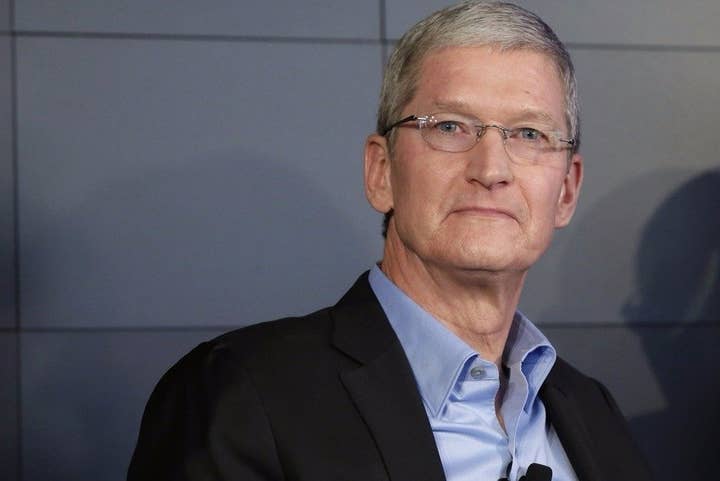Apple opposes FBI order to build iOS "backdoor"
Manufacturer says move would "undermine...freedoms and liberty"
Apple has penned an open letter to customers in defence of its decision to resist an FBI order to build a version of iOS which would allow the government agency to access locked iPhones.
The FBI wants the version of iOS to access a specific iPhone - one recovered in the wake of December's tragic shooting in San Bernardino, where a married couple, Syed Rizwan Farook and Tashfeen Malik, targeted a training event for local government employees, killing 14 people before being fatally shot by police. The FBI believes that evidence contained on the phone could potentially lead to important evidence relating to a terrorist network and has asked Apple for assistance in accessing it.
However, Apple CEO Tim Cook sees the creation of such software as a watershed moment, one which might irrevocably damage the protection of civilian's private data. Once the software exists, even in the hands of the FBI, Cook says, Pandora's box cannot be closed again. Protesting the order, Cook says that his company, and other tech firms, have a duty of care to protect the interests of customers in the face of hackers, criminals and, potentially, the government.
"Compromising the security of our personal information can ultimately put our personal safety at risk," the letter reads. "That is why encryption has become so important to all of us.
"For many years, we have used encryption to protect our customers' personal data because we believe it's the only way to keep their information safe. We have even put that data out of our own reach, because we believe the contents of your iPhone are none of our business."
Cook says that although Apple is normally happy to assist criminal investigations in any way it can without violating its contract with customers, the very existence of the software requested by the FBI would contravene years of improved security measures, putting the safety and security of millions at risk.
"When the FBI has requested data that's in our possession, we have provided it. Apple complies with valid subpoenas and search warrants, as we have in the San Bernardino case. We have also made Apple engineers available to advise the FBI, and we've offered our best ideas on a number of investigative options at their disposal.
"We have great respect for the professionals at the FBI, and we believe their intentions are good. Up to this point, we have done everything that is both within our power and within the law to help them. But now the U.S. government has asked us for something we simply do not have, and something we consider too dangerous to create. They have asked us to build a backdoor to the iPhone.
"Specifically, the FBI wants us to make a new version of the iPhone operating system, circumventing several important security features, and install it on an iPhone recovered during the investigation. In the wrong hands, this software - which does not exist today - would have the potential to unlock any iPhone in someone's physical possession.
"The FBI may use different words to describe this tool, but make no mistake: Building a version of iOS that bypasses security in this way would undeniably create a backdoor. And while the government may argue that its use would be limited to this case, there is no way to guarantee such control."
The move is a bold one. Publicly resisting a direct order from national security services is unlikely to endear Apple to the government, but it is exactly the sort of issue which has become a mainstay of so many discussions involving executive powers and tech firms. The UK's government, and others in Europe, have been exercising great efforts to ensure that all communications are readable by a central executive, bypassing encryption for investigative purposes. Tech firms have resisted, to varying degrees, but the outcry from the public has generally been more convincing. Given the power, reach and profile of Apple, it's likely that however this situation resolves, it will set a significant precedent. Cook is clear about his feelings on that precedent.
"The implications of the government's demands are chilling," he continues. "If the government can use the All Writs Act to make it easier to unlock your iPhone, it would have the power to reach into anyone's device to capture their data. The government could extend this breach of privacy and demand that Apple build surveillance software to intercept your messages, access your health records or financial data, track your location, or even access your phone's microphone or camera without your knowledge.
"Opposing this order is not something we take lightly. We feel we must speak up in the face of what we see as an overreach by the U.S. government.
"We are challenging the FBI's demands with the deepest respect for American democracy and a love of our country. We believe it would be in the best interest of everyone to step back and consider the implications.
"While we believe the FBI's intentions are good, it would be wrong for the government to force us to build a backdoor into our products. And ultimately, we fear that this demand would undermine the very freedoms and liberty our government is meant to protect."

